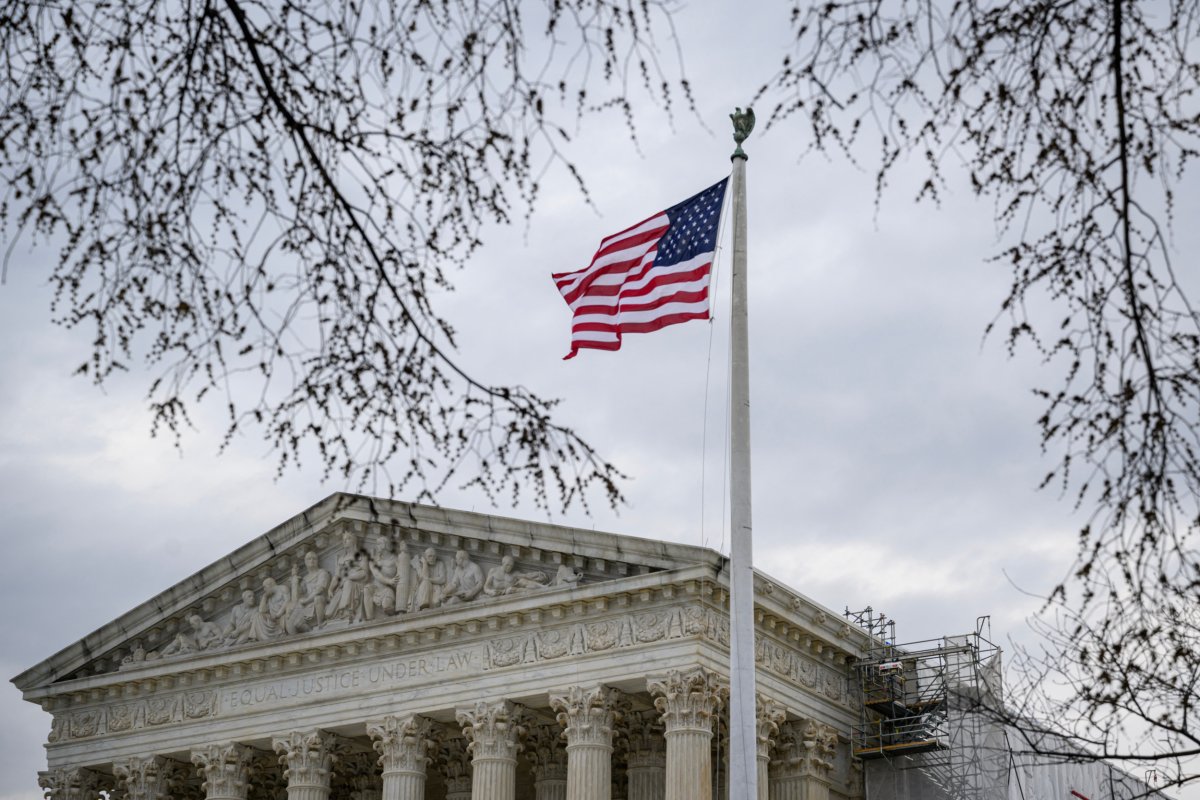A court in Pennsylvania has issued a ruling about mail-in ballots that could lead to a major case at the U.S. Supreme Court and have an important impact on the 2024 presidential election.
A three-judge panel of the U.S. Circuit Court of Appeals for the Third Circuit ruled by a vote of 2 to 1 on Wednesday that mail-in ballots without a handwritten date or with an incorrect date should not be counted.
That decision is likely to be be appealed to the Supreme Court and the Court's final decision could have major consequences for the upcoming presidential election as well as other elections that use mail-in ballots, like races for the House of Representatives and the Senate.

According to the Pew Research Center, 46 percent of voters used mail-in or absentee ballots in the 2020 presidential election and more Biden voters used this method than Trump voters.
The appeals court's decision overturned a previous ruling handed down by the U.S. District Court for the Western District of Pennsylvania.
Pennsylvania state law requires a handwritten date on the envelopes containing mail-in ballots but the date is not used to determine voter eligibility. In the past, wrongly dated and undated ballots have been counted.
The matter at issue in the case was whether not counting the ballots in question would violate the 1964 Civil Rights Act. Under the act, the right to vote cannot be denied because of an "error or omission" that is "not material" to determining whether someone is eligible to vote.
U.S. Circuit Judge Thomas Ambro, writing the majority opinion, cited the materiality provision, a legal principle that he said "only applies when the State is determining who may vote."
"The Provision does not apply to rules, like the date requirement, that govern how a qualified voter must cast his ballot for it to be counted," Ambro wrote.
Ambro, an appointee of former President Bill Clinton, was joined by Judge Cindy Chung, who was appointed by President Biden. The third member of the panel, Judge Patty Shwartz, wrote a dissenting opinion. Shwartz was appointed by former President Barack Obama.
A Supreme Court decision on the matter would affect Pennsylvania and other states that have similar laws regarding mail-in ballots.
The Pew Research Center found that 58 percent of Biden voters had used absentee or mail-in ballots in 2020, compared to 32 percent of Trump voters.
Pennsylvania is also a crucial swing state that Biden won in 2020 but went to Trump in 2016.
The Republican National Committee (RNC) had appealed the lower court's ruling and welcomed Wednesday's decision in a statement from Chair Michael Whatley.
"Pennsylvanians deserve to feel confident in the security of their mail ballots, and this 3rd Circuit ruling roundly rejects unlawful left-wing attempts to count undated or incorrectly dated mail ballots," Whatley said.
"Republicans will continue to fight and win for election integrity in courts across the country ahead of the 2024 election," he said.
The American Civil Liberties Union (ACLU) is representing the main plaintiff in the case, the Pennsylvania State Conference of the NAACP, and suggested that they would appeal in a statement from Mike Lee, executive director of the ACLU of Pennsylvania, in a statement.
"If this ruling stands, thousands of Pennsylvania voters could lose their vote over a meaningless paperwork error," Lee said.
"The ballots in question in this case come from voters who are eligible and who met the submission deadline. In passing the Civil Rights Act, Congress put a guardrail in place to be sure that states don't erect unnecessary barriers that disenfranchise voters. It's unfortunate that the court failed to recognize that principle. Voters lose as a result of this ruling," he said.
If the Supreme Court takes up the case, the justices' decision could have wide-ranging consequences.
Uncommon Knowledge
Newsweek is committed to challenging conventional wisdom and finding connections in the search for common ground.
Newsweek is committed to challenging conventional wisdom and finding connections in the search for common ground.
About the writer
Darragh Roche is a U.S. News Reporter based in Limerick, Ireland. His focus is reporting on U.S. politics. He has ... Read more
To read how Newsweek uses AI as a newsroom tool, Click here.








